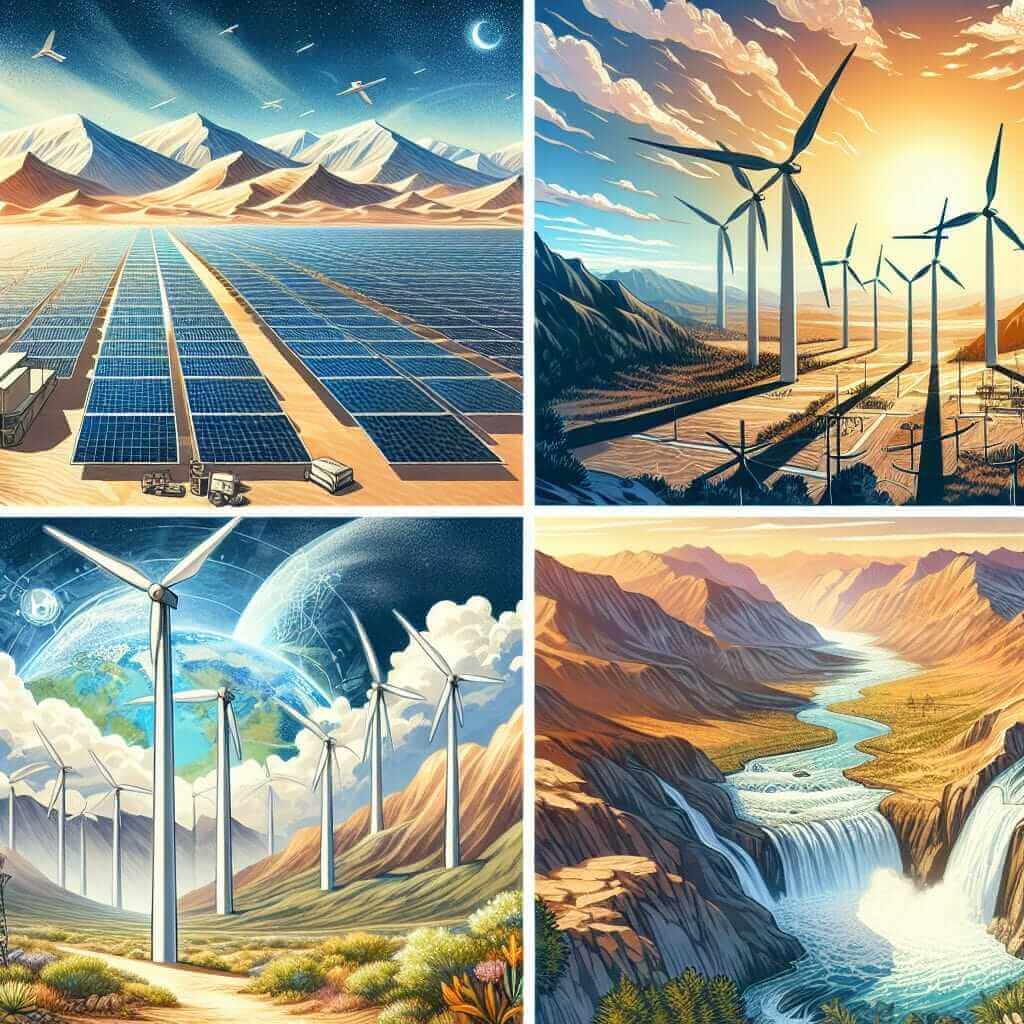The IELTS Reading section is a crucial part of the IELTS examination. It tests the candidates’ abilities to read and comprehend complex texts, which can range from easy to difficult. The topic of renewable energy adoption and its influence on geopolitical relations is both current and highly relevant, making it a likely candidate for future IELTS Reading sections. This article will provide a comprehensive study guide on this topic, detailing the potential structure of the reading passage, practice questions, answers, and additional learning resources.
Reading Passage: Renewable Energy Adoption and Geopolitical Relations
Reading Passage
The adoption of renewable energy sources such as solar, wind, and hydroelectric power is reshaping geopolitical relations globally. Countries traditionally reliant on fossil fuels for economic stability are experiencing significant shifts in their geopolitical strategies and alliances. Renewable energy technology has not only become a critical factor for environmental sustainability but has also introduced new dynamics in international politics.
For instance, nations with abundant renewable energy resources are emerging as new power players on the global stage. Countries like China and India are heavily investing in renewable energy infrastructure, which is altering traditional energy dependencies and power structures. Conversely, oil-rich nations, particularly in the Middle East, are being forced to diversify their economies and explore new avenues for maintaining their geopolitical influence.

Moreover, the shift towards renewable energy is also fostering cooperation and conflict simultaneously. Europe, for example, aims to reduce dependence on Russian gas by investing in renewable technologies and building interconnectors with North African solar farms. At the same time, the competition to control the technology and resources necessary for renewable energy, such as lithium and cobalt for batteries, is giving rise to new forms of geopolitical rivalry.
Through multilateral agreements and innovations in technology, the transition to renewable energy could potentially reduce global tensions related to energy scarcity. However, the competition for leadership in the renewable energy sector may also provoke new geopolitical tensions, similar to past struggles over fossil fuels.
Questions
1. Multiple Choice
-
Which of the following countries are becoming new power players due to renewable energy?
- A. Russia and Saudi Arabia
- B. China and India
- C. USA and Germany
- D. Brazil and Argentina
-
What is a potential consequence of Europe’s investment in renewable technologies?
- A. Increased reliance on Russian gas
- B. Higher oil imports from the Middle East
- C. Reduced dependence on fossil fuels
- D. Increased geopolitical tension with North America
2. True/False/Not Given
-
The adoption of renewable energy is only fostering cooperation among countries.
- A. True
- B. False
- C. Not Given
-
Europe is building interconnectors with North African countries to import solar energy.
- A. True
- B. False
- C. Not Given
3. Matching Information
-
Match the following statements with the countries they describe:
-
Diversifying economy due to renewable energy shift – ___
-
Improving renewable energy infrastructure to reduce foreign dependency – ___
-
A. USA
-
B. China
-
C. Middle Eastern countries
-
D. European countries
-
4. Short Answer Questions
- Name two resources essential for renewable energy technology.
- Why might the transition to renewable energy reduce global tensions?
Answer Key
- B. China and India
- C. Reduced dependence on fossil fuels
- B. False
- A. True
-
- C. Middle Eastern countries
- D. European countries
- Lithium, cobalt
- Through multilateral agreements and innovations in technology, which can reduce global tensions related to energy scarcity.
Common Mistakes
- Misunderstanding the context of geopolitical relations influenced by renewable energy.
- Incorrectly interpreting True/False/Not Given questions. It’s crucial to distinguish between statements supported by the text, those contradicted by the text, and those not addressed at all.
- Confusion between countries’ roles and investments in renewable energy.
Vocabulary
- Infrastructure (noun) /ˈɪn.frəˌstrʌk.tʃər/: the basic physical and organizational structures and facilities needed for the operation of a society or enterprise.
- Dependency (noun) /dɪˈpen.dən.si/: the state of relying on or being controlled by someone or something else.
- Geopolitical (adjective) /ˌdʒiː.oʊ.pəˈlɪt.ɪ.kəl/: relating to politics, especially international relations, as influenced by geographical factors.
- Renewable (adjective) /rɪˈnjuː.ə.bəl/: relating to a natural resource or source of energy that is not depleted when used, such as wind or solar power.
Grammar
-
Relative Clauses: Used to add extra information about something without starting a new sentence.
- Example: “Countries like China and India, which are heavily investing in renewable energy, are altering traditional energy dependencies.”
-
Passive Voice: Often used in scientific writing to focus on the action rather than who is performing it.
- Example: “Renewable energy technology has been introduced as a critical factor for environmental sustainability.”
Advice for High Reading Scores
- Practice Regularly: Consistent practice with reading passages similar to those in the IELTS exam will improve your comprehension skills.
- Improve Vocabulary: Building a strong vocabulary is essential for understanding complex texts.
- Time Management: Practice completing reading passages within the time limits to enhance your reading speed and accuracy.
- Understand Question Types: Familiarize yourself with the different types of questions in the IELTS Reading section to better strategize your approach.